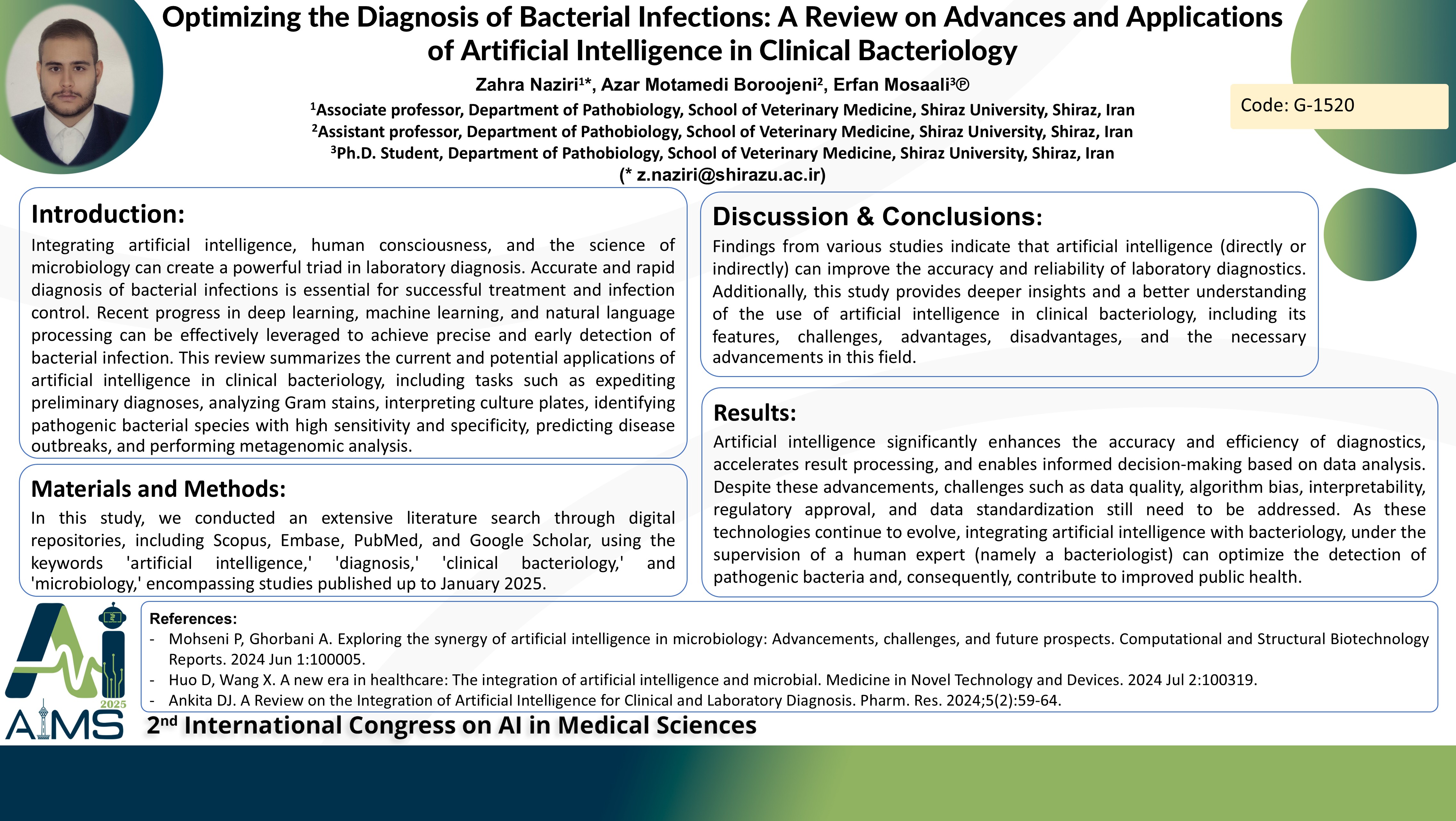بهینه سازی تشخیص عفونت های باکتریایی: مروری بر پیشرفت ها و کاربردهای هوش مصنوعی در باکتری شناسی بالینی
کد: G-1520
نویسندگان: Zahra Naziri *, Azar Motamedi Boroojeni, Erfan Mosaali ℗
زمان بندی: زمان بندی نشده!
برچسب: سیستم های تصمیم یار بالینی
دانلود: دانلود پوستر
خلاصه مقاله:
خلاصه مقاله
Background and aims: Integrating artificial intelligence, human consciousness, and the science of microbiology can create a powerful triad in laboratory diagnosis. Accurate and rapid diagnosis of bacterial infections is essential for successful treatment and infection control. Recent progress in deep learning, machine learning, and natural language processing can be effectively leveraged to achieve precise and early detection of bacterial infection. This review summarizes the current and potential applications of artificial intelligence in clinical bacteriology, including tasks such as expediting preliminary diagnoses, analyzing Gram stains, interpreting culture plates, identifying pathogenic bacterial species with high sensitivity and specificity, predicting disease outbreaks, and performing metagenomic analysis. Method: In this study, we conducted an extensive literature search through digital repositories, including Scopus, Embase, PubMed, and Google Scholar, using the keywords 'artificial intelligence,' 'diagnosis,' 'clinical bacteriology,' and 'microbiology,' encompassing studies published up to January 2025. Results: Findings from various studies indicate that artificial intelligence (directly or indirectly) can improve the accuracy and reliability of laboratory diagnostics. Additionally, this study provides deeper insights and a better understanding of the use of artificial intelligence in clinical bacteriology, including its features, challenges, advantages, disadvantages, and the necessary advancements in this field. Conclusion: Artificial intelligence significantly enhances the accuracy and efficiency of diagnostics, accelerates result processing, and enables informed decision-making based on data analysis. Despite these advancements, challenges such as data quality, algorithm bias, interpretability, regulatory approval, and data standardization still need to be addressed. As these technologies continue to evolve, integrating artificial intelligence with bacteriology, under the supervision of a human expert (namely a bacteriologist) can optimize the detection of pathogenic bacteria and, consequently, contribute to improved public health.
کلمات کلیدی
Artificial Intelligence, Diagnosis, Clinical Bacteriology, Microbiology
